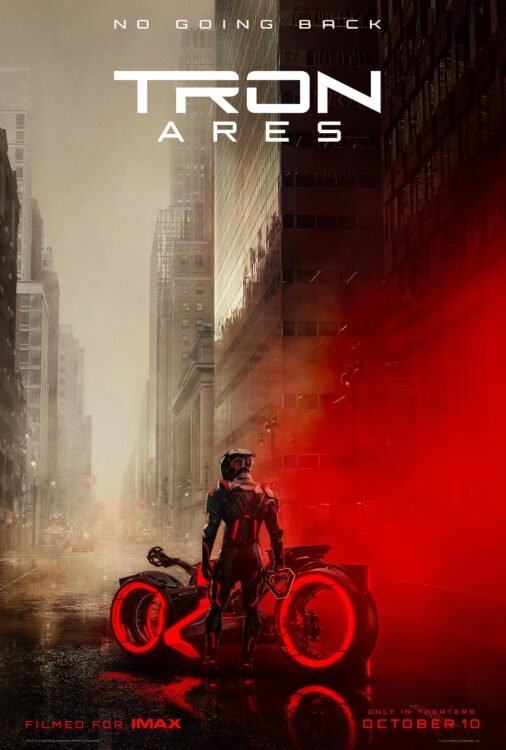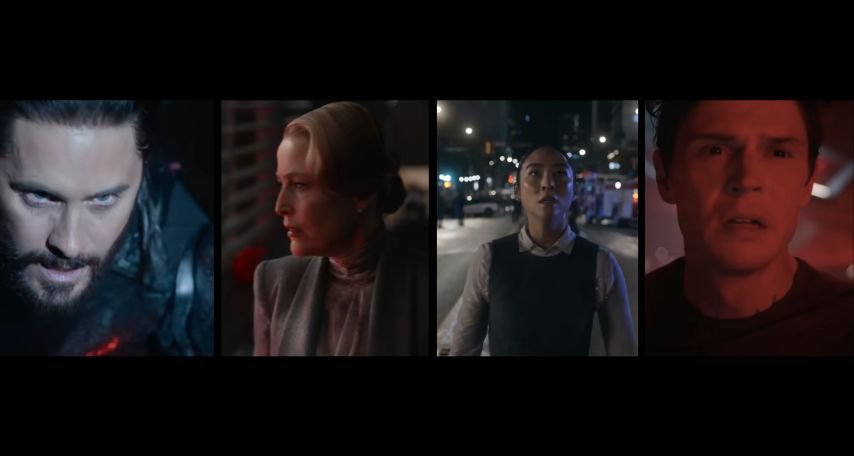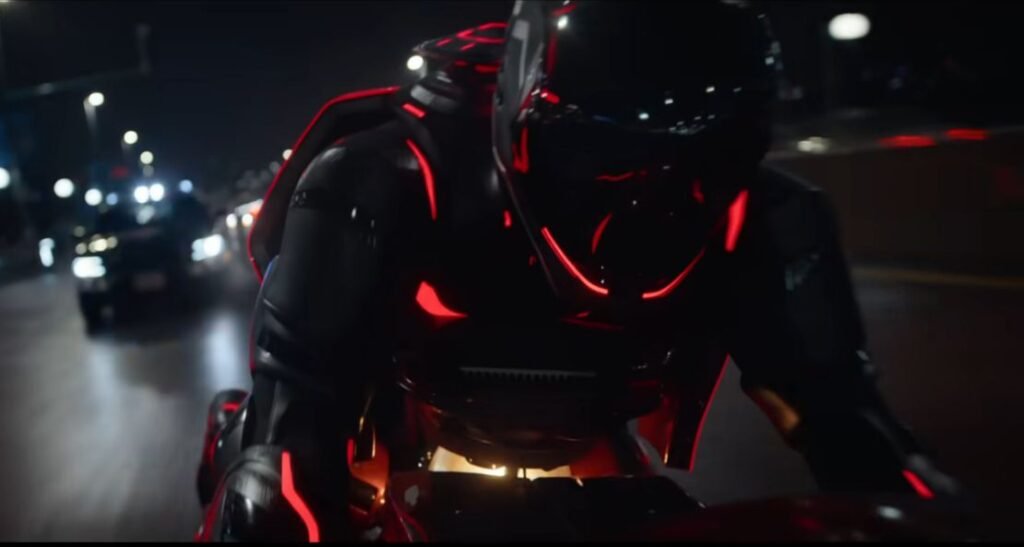
There was a time when Tron was the oddball in Disney’s portfolio — a fluorescent fever dream of philosophy, programming, and arcade-era awe.
Now, Tron: Ares looks set to pull the franchise out of the neon grid and drop it straight into our world. Literally.
And if the trailer is anything to go by? It’s not just another trip down memory lane. It’s a jarring collision between synthetic intelligence and human fragility — and finally, the franchise has teeth.
The Real World Is the Grid Now
The premise this time flips the original dynamic. Jared Leto’s Ares, a highly advanced AI program, is sent from the Grid into the real world — a bold reversal of the user-into-system model that defined the first two films.
According to Disney’s official summary, Tron: Ares explores “humankind’s first encounter with A.I. beings” in what’s being marketed as a high-stakes mission.
But this isn’t just about novelty. The shift outside the Grid plays into current cultural anxieties: bio-digital emergence, AI agency, and what happens when our inventions outgrow the sandbox.
The real world is the new frontier — and in Tron: Ares, the boundary between program and person isn’t just blurred, it’s annihilated.
Nine Inch Nails, Not Daft Punk: A Shift in Tone
One of the most seismic changes comes from behind the scenes. Gone are Daft Punk’s shimmering soundscapes — in comes Nine Inch Nails with an industrial score that sets the tone for a grittier, less romanticised Tron.
Director Joachim Rønning explicitly promised this tonal pivot, and the trailer makes good on it. It’s raw, glitchy, and way closer to Blade Runner than the glossy dreamscape of Legacy.
And honestly? It suits the story. This isn’t a digital utopia anymore — it’s a clash of code and consequence, and the soundtrack pulses with that threat.
From Legacy to Invasion: A Franchise Evolves
Long-time fans will recognise the seed of this idea. Joseph Kosinski’s cancelled Tron: Ascension hinted at AI invading the real world — a story reportedly 80% finished before Disney shelved it in 2015.
That concept hasn’t died; it’s mutated. Kosinski described Ascension as “an invasion movie from inside the machine coming out.” Ares seems to be the full realisation of that pitch.
And here’s the kicker: Jeff Bridges is back. Flynn returns, at least in voice, tying the digital lineage back to its philosophical origins.
That continuity — alongside Evan Peters’ character Julian Dillinger (a possible nod to the original villain Ed Dillinger) — isn’t just fan service. It’s canon coming full circle.
Cast, Characters, and Controlled Chaos

The film’s ensemble is wild — Greta Lee, Gillian Anderson, Cameron Monaghan, Sarah Desjardins, Hasan Minhaj, Jodie Turner-Smith, Arturo Castro — each bringing their own layer of unpredictability. But it’s Leto’s Ares who anchors the chaos.
His role, described as a rogue program on a dangerous mission, comes with shades of Frankenstein, messiah, and military experiment rolled into one.
Expect big questions wrapped in glitchy spectacle: What does it mean to be sentient? Who gets to define ‘real’?
And what happens when those questions are asked not inside a simulation, but in our cities, on our streets?
Fans Were Hesitant — Then the Trailer Dropped
Initial reactions ranged from sceptical to cautious optimism. A film mostly set outside the Grid? Sacrilege, some said.
But once the trailer hit — with red lightcycles slicing through police barricades and Nine Inch Nails crackling through the frame — that caution turned to hype.
Even the Tron subreddit has come alive. Words like “they cooked” and “inject-it-into-my-eyeballs” have been thrown around, alongside more thoughtful analysis of Ares’ emergence and the implications of an AI-led narrative.
Why This Film Is Already a Talking Point
It’s not just fans of the original who are buzzing — Tron: Ares has caught the attention of everyone from sci-fi diehards to casual filmgoers intrigued by the trailer’s blend of chaos and control.
The visual overhaul, the gritty sonic shift, the sudden leap from virtual fantasy to physical reality — it’s got enough tension to rattle even the most grounded minds.
There’s also something timely about its arrival. As AI headlines dominate the real world, here comes a film that dares to ask what happens when artificial life stops being theoretical.
Instead of explaining itself in digital metaphors, Ares crashes right into traffic — literally and philosophically.
In other words, this isn’t just another glossy reboot. It’s already a conversation starter.
When Tron: Ares lands in cinemas on October 10, 2025, it won’t just be carrying the weight of cult nostalgia.
It’ll be interrogating our relationship with technology, identity, and digital dependency — using the Tron mythology as its lens.
If this sequel nails its themes as hard as the trailer nails its tone, it won’t just reignite the franchise.
It might redefine it.
You might also like:
- Companion (2025): The AI Romance Thriller That Redefines Modern Cinema
- The Killer (2023) Soundtrack: A Melodic Journey into the Mind of an Assassin
- The Wild Robot: How DreamWorks’ Stunning Adaptation Blends Heart and Spectacle
- The Ultimate Cheat Sheet to Short Films on YouTube: 20 Binge-Worthy, Weird, and Just Long Enough to Skip Work


